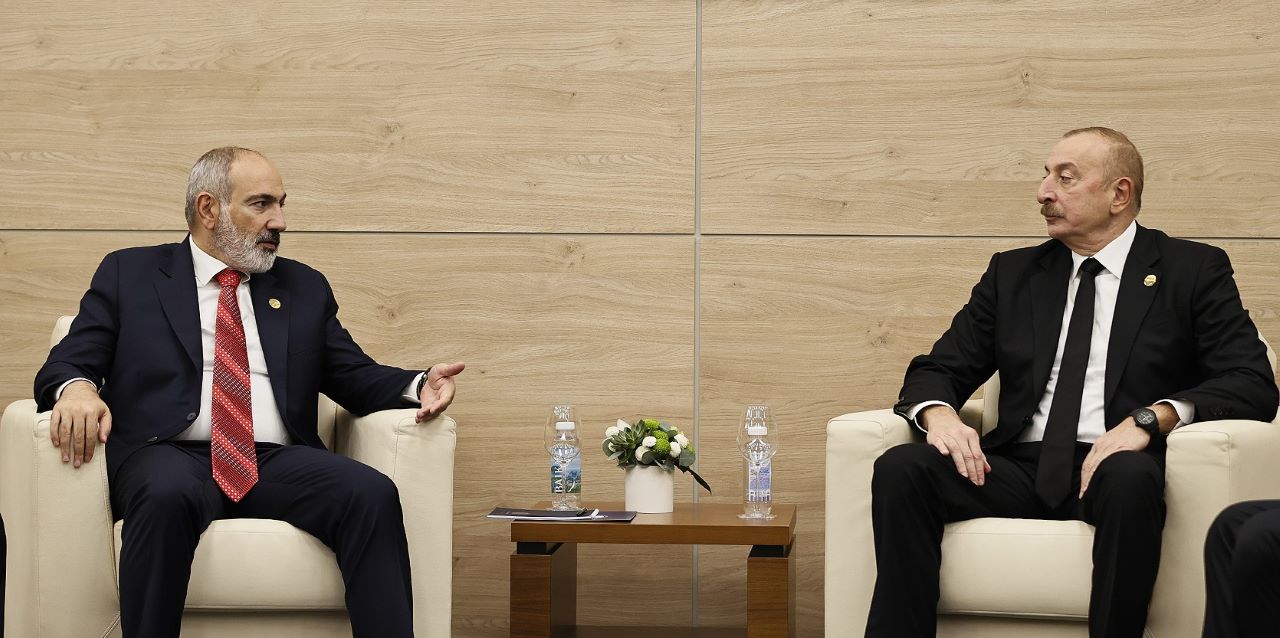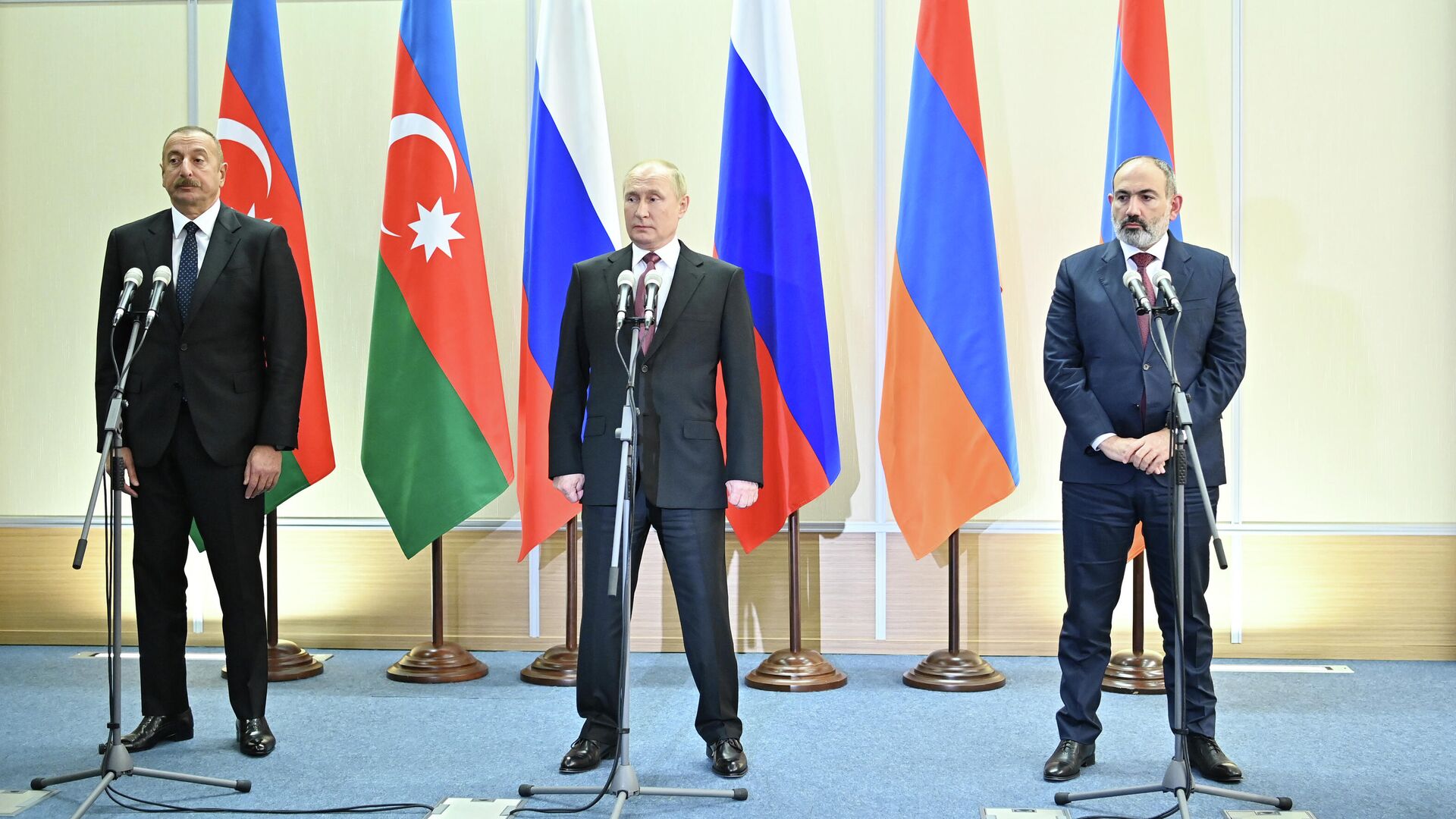What could push Baku to sign peace agreement with Armenia?
Azerbaijan doesn’t need peace agreement
After the exodus of all Armenians from Nagorno-Karabakh and the withdrawal of Russian peacekeepers, I see no motives that could convince or force Azerbaijan to sign a peace agreement with Armenia,” says political analyst Benyamin Poghosyan.
Yerevan and Baku have recently stated multiple times that 15 out of 17 provisions of the document have already been agreed upon. Some Armenian experts believe that, with political will, the agreement could be signed within 24 hours. However, Poghosyan does not share this optimism.
It remains unclear when and how the two unresolved provisions will be agreed upon, says the expert. In his view, the points of contention are Baku’s demand for Armenia to abandon the EU observer mission monitoring Armenia’s border and for Yerevan to withdraw its international lawsuits against Azerbaijan.
Benyamin Poghosyan also notes that Baku has set a series of preconditions for signing the agreement, including:
- amending Armenia’s constitution, as Azerbaijan believes it contains territorial claims against them;
- dissolving the OSCE Minsk Group, which previously dealt with the Karabakh conflict resolution;
- granting Azerbaijan an extraterritorial road through Armenian territory (the “Zangezur Corridor”) to connect with its Nakhchivan exclave.
In any case, the political analyst is convinced that Azerbaijan has no real concerns or fears. According to Poghosyan, Baku is simply looking for excuses not to sign the document.
- Opinion: Armenia faces challenge if EU observers leave without security guarantees
- Yerevan: direct talks with Baku on unblocking routes “possible”
- “Armenia isn’t militarizing but raising cost of attacking it”: opinion
‘We’re dealing with excuses, not fundamental preconditions’
Speaking about the preconditions, the political analyst noted that the issue is not that Azerbaijan has any serious concerns regarding fundamental issues that need to be resolved before signing the agreement:
“We are dealing with excuses—something to say to avoid signing the agreement. And the list of these excuses is endless.”
According to Poghosyan, even if Yerevan fulfills all the preconditions, it is unlikely that the peace agreement will be signed:
“Most likely, Aliyev will announce yet another mandatory condition. For example, he might declare that Armenia’s armed forces must not possess more than 100 tanks, they should have no aviation, and so on.”
‘Hostile Armenia is a factor in legitimizing Aliyev’s power’
According to Poghosyan, signing a peace agreement under the current conditions offers no benefits to Azerbaijan. Moreover, it might even be “harmful,” particularly for President Aliyev:
“Aliyev’s regime relies on certain factors for its legitimacy. One of them was the return of Karabakh, and the other is economic prosperity. In 2006-2007, part of society, to some extent, benefited from the revenues generated by oil and gas sales, even if just crumbs, allowing them to live slightly better.
Now that Karabakh has been regained, living a decent life is becoming increasingly difficult. Oil and gas production is declining, reserves are shrinking, and the demand for energy resources is falling due to the transition to green energy. However, Ilham Aliyev’s desire to remain in power, pass it to his wife, and eventually to his son, has not diminished.”
The political analyst believes that the nationalist narrative of a “hostile Armenia” will continue to be used as a factor for “legitimizing Aliyev’s power.”
Poghosyan highlights that Baku is also intensively promoting the idea of uniting the Turkic world. In this context, Azerbaijan has integrated the issue of the “Zangezur Corridor” through Armenian territory into the concept of Turkic world unification.
“With this, Aliyev wants to show that Azerbaijan is stepping out of the league of small states. Even if it does not become a mid-sized state like Turkey, it is at least approaching that level by becoming part of a powerful Turkic world,” the analyst concluded.
Who can “hold Aliyev back”?
According to Benyamin Poghosyan, “holding Aliyev back”—meaning stopping him—can only happen by forcing him to sign a peace agreement or at least convincing him not to launch another military attack on Armenia. The political analyst believes that neither the EU nor Iran can achieve this. He reminds that Tehran was unable to prevent the attempted overthrow of Assad’s regime in Syria, which was far more important for Iran than issues related to the South Caucasus.
“Theoretically, Trump could act as a restraining factor, but he is an unpredictable figure. In any case, cooperation with the United States is necessary. There cannot be only one restraining factor. Russia could also assume this role, as it still remains, de jure, Armenia’s ally,” he said.
The expert stresses that, in parallel with these processes, it is crucial to modernize Armenia’s military, as this would significantly raise the cost of any attack against the country.





















